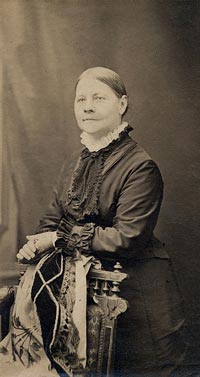A couple of weeks ago one of my Tennessee aunts sent copies of some family documents, including a marriage bond–a type of document I’d never before seen. So I did a little digging. A marriage bond was an instrument used all across the South in the 19th century, mainly as a guarantee that neither the prospective bride or groom was a bigamist. Apparently back then, bigamy was fairly common. A bondsman, usually an uncle or brother of the bride, someone to be “able and knowne” pledged to pay a certain sum if the groom violated the marriage contract. In the case of my ancestors, the amount to be paid was $1250.00. Quite a sum in 1904! A couple could avoid the bond by proclaiming “banns” –their intent to marry— for three consecutive weeks in church. If no one objected, the minister performed the ceremony. According to the history I was able to uncover, these provisions date from colonial laws of Virginia and North Carolina and were brought to Tennessee with the first settlers.

In the 19th century, marriage was not all sweetness and light. A woman gave up rights to her very personhood when she married. Among the laws in force in the mid 1800’s were those that gave the husband custody of the wife’s person, exclusive control and guardianship of their children, absolute rights to the product of her industry, and sole ownership of her personal and real estate, and precluded the wife’s right to make a will or inherit property. Into this morass of inequality stepped Lucy Stone, the brilliant and determined suffragette and abolitionist pictured here. Born in 1818, Lucy fought for equality for women and was the first woman to keep her own name after marriage. When she married Henry Blackwell in 1855, the couple signed a protest enumerating the injustices to women and refusing to obey “the present laws of marriage as refuse to recognize the wife as an independent rational being while they confer upon the husband an injurious and unnatural superiority, investing him with legal powers which no honorable man would exercise and which no man should possess. ”
The minister who performed the ceremony, The Reverend Thomas Wentworth Higginson, read the statement at the ceremony and gave copies to other ministers as a model he urged other couples to follow. Today’s brides have Lucy Stone and her contemporaries to thank for blazing the trail toward marital equality.
What about you? Would you have entered into marriage under such Draconian terms?
Wonderful post – historically rich. Sad to think wives weren’t honored for so many years. We’ve been looking into this on my colonial loop. Seems like some of those early American customs/laws died a slow death. Thanks for sharing this info here. So looking forward to your book. Love the beautiful cover!
Thanks,
Laura
thanks, Laura.One reason I love writing historical fiction is that I keep learning cool stuff. I love my cover, too!
Very informative! Love this as I write both historical and contemporary fiction as well as non-fiction.
Angie
Angie, so happy you enjoyed it. Historicals are my favorite to write, because of all the cool stuff I learn in the process. I post to the blog on Mondays and to Writers Caffeine…when I have time.
So glad you stopped by.